Fleurs du Mal Magazine


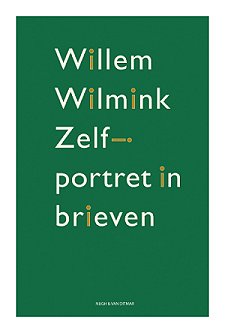 Elsbeth Etty & Hans Dorrestijn
Elsbeth Etty & Hans Dorrestijn
in VPRO BOEKEN
over Willem Wilmink
zondag 01 juni 2014 om 10.30 uur
Naar aanleiding van het pas verschenen Willem Wilmink: Zelfportret in brieven, zijn Elsbeth Etty en Hans Dorrestijn te gast om over Willem Wilmink te vertellen. Willem Wilmink was vooral bekend als dichter en tekstschrijver van liedjes. Daarnaast schreef hij honderden brieven aan familie en vrienden : dankbrieven, excuusbrieven, liefdesbrieven, afwijsbrieven, mopperbrieven en ruziebrieven. Elsbeth Etty is de biografie over Willem Wilmink aan het schrijven en Hans Dorrestijn was naast collega-schrijver en dichter ook een goede vriend van hem.
fleursdumal.nl magazine
More in: - Book News, Art & Literature News
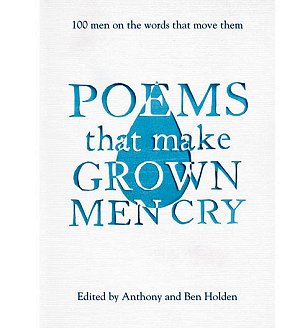 GROWN MEN AREN’T SUPPOSED TO CRY
GROWN MEN AREN’T SUPPOSED TO CRY
But in this fascinating anthology, one hundred men – distinguished in literature and film, science and architecture, theatre and human rights – confess to being moved to tears by poems that haunt them. Representing twenty nationalities and ranging in age from their early 20s to their late 80s, the majority are public figures not prone to crying. Here they admit to breaking down when ambushed by great art, often in words as powerful as the poems themselves.
Seventy-five percent of the selected poems were written in the twentieth century, with more than a dozen by women. Their themes range from love in its many guises, through mortality and loss, to the beauty and variety of nature. Three men have suffered the pain of losing a child; others are moved to tears by the exquisite way a poet captures, in Alexander Pope’s famous phrase, ‘what oft was thought, but ne’er so well express’d’.
From J.J Abrams to John le Carré, Salman Rushdie to Jonathan Franzen, Daniel Radcliffe to Nick Cave, Ian McEwan to Stephen Fry, Stanley Tucci to Colin Firth, and Seamus Heaney to Christopher Hitchens, this collection delivers private insight into the souls of men whose writing, acting, and thinking are admired around the world.
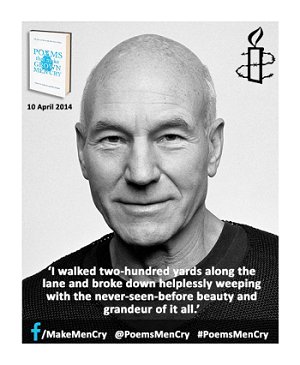 Compiled by Anthony and Ben Holden. Anthony is an award-winning journalist who has published more than 30 books, including biographies of Laurence Olivier, Tchaikovsky and Shakespeare.He has published translations of opera, ancient Greek plays and poetry. His son Ben is a writer and film producer. He was director of European Film and Television at Exclusive Media, where he helped relaunch Britain’s most famous film production label, Hammer. Anthony and Ben both live in London.
Compiled by Anthony and Ben Holden. Anthony is an award-winning journalist who has published more than 30 books, including biographies of Laurence Olivier, Tchaikovsky and Shakespeare.He has published translations of opera, ancient Greek plays and poetry. His son Ben is a writer and film producer. He was director of European Film and Television at Exclusive Media, where he helped relaunch Britain’s most famous film production label, Hammer. Anthony and Ben both live in London.
GROWN MEN AREN’T SUPPOSED TO CRY.
ISBN-13 9781471134890 Hardback
Pages 336
Size 13.5 x 21.6 cms
With contributors from Salman Rushdie to Jonathan Franzen, Daniel Radcliffe to Nick Cave and some of the most emotive lines in literature.
# See more at: website Amnesty Intenational
REVIEWS:
“What I most love about the title chosen by father-and-son editing team Anthony and Ben Holden is the proud grasp of emotion as mature and manly. Two words that become magnificent in their juxtaposition: ‘men’ and ‘cry’”. – Bel Mooney, The Daily Mail
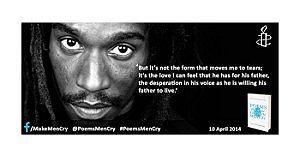 ‘…That’s the great thing about a good anthology of poems: you are reminded of old friends and introduced to new ones […] this is a welcome addition to my shelves and I’ll look forward to “Poems That Make Women Cry”.’ – Wendy Cope, Sunday Telegraph
‘…That’s the great thing about a good anthology of poems: you are reminded of old friends and introduced to new ones […] this is a welcome addition to my shelves and I’ll look forward to “Poems That Make Women Cry”.’ – Wendy Cope, Sunday Telegraph
“The Holdens remind us that you don’t have to be an academic or a postgraduate in creative writing to be moved by verse…I defy anyone not to enjoy the Holdens’ book: It’s plain fun.” – Wall Street Journal
“Poems That Make Grown Men Cry is an anthology of some of the most emotive lines in literature chosen by 100 famous and admired men, ranging from Daniel Radcliffe to Nick Cave, John le Carré and Jonathan Franzen.” – Vanessa Thorpe, The Guardian
“Everyone who reads this collection will be roused: disturbed by the pain, exalted in the zest for joy given by poets” – The Observer
“The book is winning praise for introducing male readers to unfamiliar works and emotions.” – The Observer
“Yes, this book will make an ideal gift for the men in your life, particularly those who shudder at the very thought of reading poems. And, of course, as Nadine Gordimer’s and my personal examples prove, it can be enjoyed by everyone, regardless of gender or nationality. After all, that is the power of poetry: how it can speak to each one of us individually and intimately.” – Jenny Bhatt, Storyacious
“Various male Man Booker authors have been blubbing their hearts out in the name of charity. Poems that Make Grown Men Cry, edited by Anthony and Ben Holden, is a collection of verse that brings out the lachrymose side of a swathe of men not usually known for welling up.” – The Man Booker Prize
fleursdumal.nl magazine
More in: Art & Literature News, FLEURSDUMAL POETRY LIBRARY - classic, modern, experimental & visual & sound poetry, poetry in translation, city poets, poetry archive, pre-raphaelites, editor's choice, etc., REPRESSION OF WRITERS, JOURNALISTS & ARTISTS
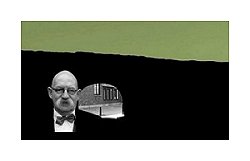
Baden-Württemberg
Heidelberg bergt kennis uit verre, verre eeuwen.
Zeult die braaf mee, als een graag gedragen schuld.
In de heuvels hieromheen scharrelen Frischlinge
in het woud, met tal van nutteloze zachte streepjes
nog. Hun neusjes zijn vochtig als een stempelkussen.
Wij drinken prachtig bier uit grote glazen, en kunnen
ons over de zachtheid van deze vallei slechts verbazen.
Veel belooft. Ontroering mag een lange boog.
Bert Bevers
(uit Onaangepaste tijden, Uitgeverij Zinderend, Bergen op Zoom, 2006)
fleursdumal.nl magazine
More in: Archive A-B, Bevers, Bert

The Sorrows of Young Werther (37) by J.W. von Goethe
FEBRUARY 8.
For a week past we have had the most wretched weather: but this to me
is a blessing; for, during my residence here, not a single fine day has
beamed from the heavens, but has been lost to me by the intrusion
of somebody. During the severity of rain, sleet, frost, and storm, I
congratulate myself that it cannot be worse indoors than abroad, nor
worse abroad than it is within doors; and so I become reconciled. When
the sun rises bright in the morning, and promises a glorious day, I
never omit to exclaim, “There, now, they have another blessing
from Heaven, which they will be sure to destroy: they spoil
everything,–health, fame, happiness, amusement; and they do this
generally through folly, ignorance, or imbecility, and always, according
to their own account, with the best intentions!” I could often
beseech them, on my bended knees, to be less resolved upon their own
destruction.
FEBRUARY 17.
I fear that my ambassador and I shall not continue much longer together.
He is really growing past endurance. He transacts his business in so
ridiculous a manner, that I am often compelled to contradict him, and do
things my own way; and then, of course, he thinks them very ill done. He
complained of me lately on this account at court; and the minister gave
me a reprimand,–a gentle one it is true, but still a reprimand. In
consequence of this, I was about to tender my resignation, when I
received a letter, to which I submitted with great respect, on
account of the high, noble, and generous spirit which dictated it. He
endeavoured to soothe my excessive sensibility, paid a tribute to my
extreme ideas of duty, of good example, and of perseverance in business,
as the fruit of my youthful ardour, an impulse which he did not seek
to destroy, but only to moderate, that it might have proper play and be
productive of good. So now I am at rest for another week, and no longer
at variance with myself. Content and peace of mind are valuable things:
I could wish, my dear friend, that these precious jewels were less
transitory.
FEBRUARY 20.
God bless you, my dear friends, and may he grant you that happiness
which he denies to me!
I thank you, Albert, for having deceived me. I waited for the news that
your wedding-day was fixed; and I intended on that day, with solemnity,
to take down Charlotte’s profile from the wall, and to bury it with
some other papers I possess. You are now united, and her picture still
remains here. Well, let it remain! Why should it not? I know that I
am still one of your society, that I still occupy a place uninjured in
Charlotte’s heart, that I hold the second place therein; and I intend
to keep it. Oh, I should become mad if she could forget! Albert, that
thought is hell! Farewell, Albert farewell, angel of heaven farewell,
Charlotte!
The Sorrows of Young Werther (Die Leiden des jungen Werther) by J.W. von Goethe. Translated by R.D. Boylan.
To be continued
fleursdumal.nl magazine
More in: -Die Leiden des jungen Werther, Goethe, Johann Wolfgang von
Guy de Maupassant
(1850-1893)
SUR LA MORT DE LOUIS BOUILHET
Il est mort, lui, mon maître ; il est mort, et pourquoi?
Lui si bon, lui si grand, si bienveillant pour moi.
Tu choisis donc, Seigneur, dans ce monde où nous sommes,
Et pour nous les ravir, tu prends les plus grands hommes.
C’est ainsi que l’on meurt, infirmes que nous sommes,
Et c’est en vain, Seigneur, que ceux qui restent pleurent,
Que se fait-il au ciel quand partent de tels hommes?
Oh ! ces gens-là, grand Dieu, pourquoi veux-tu qu’ils meurent?
As-tu donc besoin d’eux dans ta gloire infinie?
Il est mort, est-ce vrai ? Qu’est-ce donc que ces morts?
Il ne reste plus rien, mais rien qu’un pauvre corps,
Rien de lui. Même pas ce bienveillant sourire
Qui nous attirait tant et semblait toujours dire :
“Mon ami je vous aime.” Et ce regard si beau,
Ce grand oeil clair et doux si plein d’intelligence,
On sent qu’il doit souffrir une horrible souffrance
Pour demeurer ainsi fixe dans son tombeau.
Mais non, c’est encore là l’insondable mystère.
Puisque le grain de blé renaît et sort de terre,
Puisque rien ne périt dans la création,
Puisque tout est progrès et transformation,
Il n’a fait que laisser sa dépouille mortelle.
Mais son âme, mon Dieu, maintenant que fait-elle?
Nous a-t-elle quittés pour rejoindre si tôt
Tous ses grands frères morts qui l’attendaient là-haut?
Dans quel monde inconnu va-t-elle errer, cette âme,
Cette âme de poète au grand oeil caressant
Qui nous lançait parfois un éclair si puissant
Qu’il nous éblouissait ainsi qu’un jet de flammes.
Et cet oeil… Il fait peur avec sa fixité
Et semble épouvanté d’une horreur inconnue
Comme s’il avait vu devant nous s’agiter
L’âme qui l’animait tout à coup revenue!…
Ah ! si vous l’aviez vu sous ses poiriers en fleurs,
Quand son bras sur mon bras, jasant en vieux rimeurs,
Il ouvrait sa belle âme aux longues causeries
Qui me laissaient après de longues rêveries,
Car il était si franc, si simple et naturel,
Pauvre Bouilhet ! Lui mort ! si bon, si paternel!
Lui qui m’apparaissait comme un autre Messie
Avec la clef du ciel où dort la poésie.
Et puis le voilà mort et parti pour jamais
Vers ce monde éternel où le génie aspire.
Mais de là-haut, sans doute, il nous voit et peut lire
Ce que j’avais au coeur et combien je l’aimais.
Louis Bouilhet étant mort le 18 juillet 1869.
Guy de Maupassant poetry
fleursdumal.nl magazine
More in: Archive M-N, Guy de Maupassant, Maupassant, Guy de
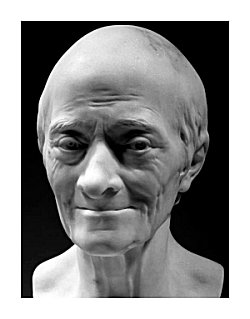
Voltaire
(1694-1778)
A Mme du Châtelet
” Si vous voulez que j’aime encore,
Rendez-moi l’âge des amours ;
Au crépuscule de mes jours
Rejoignez, s’il se peut, l’aurore.
Des beaux lieux où le dieu du vin
Avec l’Amour tient son empire,
Le Temps, qui me prend par la main,
M’avertit que je me retire.
De son inflexible rigueur
Tirons au moins quelque avantage.
Qui n’a pas l’esprit de son âge,
De son âge a tout le malheur.
Laissons à la belle jeunesse
Ses folâtres emportements.
Nous ne vivons que deux moments :
Qu’il en soit un pour la sagesse.
Quoi ! pour toujours vous me fuyez,
Tendresse, illusion, folie,
Dons du ciel, qui me consoliez
Des amertumes de la vie !
On meurt deux fois, je le vois bien :
Cesser d’aimer et d’être aimable,
C’est une mort insupportable ;
Cesser de vivre, ce n’est rien. “
Ainsi je déplorais la perte
Des erreurs de mes premiers ans ;
Et mon âme, aux désirs ouverte,
Regrettait ses égarements.
Du ciel alors daignant descendre,
L’Amitié vint à mon secours ;
Elle était peut-être aussi tendre,
Mais moins vive que les Amours.
Touché de sa beauté nouvelle,
Et de sa lumière éclairé,
Je la suivis; mais je pleurai
De ne pouvoir plus suivre qu’elle.
Voltaire poetry
fleursdumal.nl magazine
More in: Archive O-P, MONTAIGNE, Voltaire
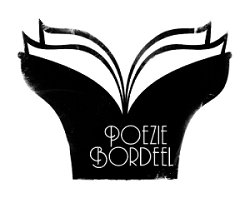
Poëziebordeel is gewaagd, suggestief en plezierig.
Wanneer is de laatste keer dat u zo sprak over poëzie?
wat is het?
POËZIEBORDEEL AU CHATEAU OP 7 JUNI IN GENT
The Poetry Brothel werd in 2007 opgericht door Stephanie Berger en Nicholas Adamski in NY en heeft intussen filialen in acht steden waaronder Los Angeles, New Orleans, Barcelona, Bogota en Zurich.
In België ontfermt Ineke Van Nieuwenhove zich gepassioneerd over het concept. Aan haar zijde scharen zich VONK & Zonen voor het literaire luik, en Carmen De Vos als fotografische soutien-gorge.
HET POËZIEBORDEEL PLAATST DICHTERS, OF BETER GEZEGD, HUN STOUTE ALTER EGO’S, IN HET WEELDERIGE INTERIEUR VAN EEN BORDEEL EN PRESENTEERT HEN ALS COURTISANES VAN HET WOORD.
In privé-lezingen geeft elke dichter zijn of haar meest intieme delen – woorden – bloot in de schemerzone van gedempt licht, sofa’s en chaises longues. Intussen vermaakt een bohémien volkje van dansers, zangeressen en muzikanten de wachtende klanten. Kortom: performance art in een liederlijk totaalconcept. Poëzie gedrenkt in een wellustige avond.
dichters van lichte zeden: De dichters van lichte zeden zijn Maud Vanhauwaert, Stijn Vranken, Lotte Dodion, Charlotte Van den Broeck, Lies Van Gasse, Jan Ducheyne en Michaël Vandebril, onder het waakzame, wulpse oog van de Madame, Ineke Van Nieuwenhove. Huisfotografe Carmen De Vos legt de poëtische esbattementen vast op de gevoelige polaroid. Maak op Facebook kennis met alle personages.
poëziebordeel au château Gent op 7 juni 2014
De première van het Poëziebordeel vond plaats op 29 maart 2014 in het Concertgebouw van Brugge als onderdeel van de Poëzienacht. Het concept sloeg aan: voor aanvang stonden al lange wachtrijen aan de ingang van het Poëziebordeel.
In juni gaan ze voor het eerst ‘all the way’ in een tot de verbeelding sprekend neo-empire kasteel net buiten Gent. Met zwoele muziek, verrassende acts, duivelse drankjes, prikkelende poëzie en Inge Braeckman als extra gastdichter. Een pre-midzomernachtdroom voor slechts 200 gegadigden.
20u00: Het Poëziebordeel opent haar deuren
21u00: De dichters stellen zich ten dienst
00u00: Meer zinderende zomernachtwarmte gedrenkt in bloesems, boezems & boogie.
POËZIEBORDEEL IS EEN INITIATIEF VAN INEKE VAN NIEUWENHOVE, MET VONK & ZONEN ALS LITERAIRE PARTNER EN CARMEN DE VOS ALS FOTOGRAFISCHE SOUTIEN-GORGE
I.S.M. THE POETRY BROTHER IN NEW YORK.
VONK & ZONEN IS EEN JONGE LITERAIRE ORGANISATIE DIE STERK INZET OP NIEUWE VORMEN OM LITERATUUR TE PRESENTEREN, ZOALS DE ‘DICHTER DES VADERLANDS’, DE TENTOONSTELLING ‘HELLEMONDEN’ OVER DE GROOTE OORLOG, DE ‘ACHTERAFGEDICHTEN’ IN DE MORGEN EN DE BIJHORENDE EINDEJAARSVOORSTELLING.
# meer informatie op facebook
fleursdumal.nl magazine
More in: Art & Literature News, The talk of the town, THEATRE
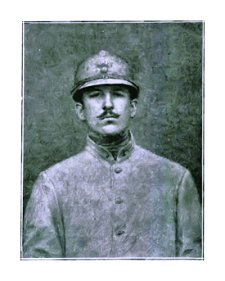
Alan Seeger
(1888-1916)
The Deserted Garden
I know a village in a far-off land
Where from a sunny, mountain-girdled plain
With tinted walls a space on either hand
And fed by many an olive-darkened lane
The high-road mounts, and thence a silver band
Through vineyard slopes above and rolling grain,
Winds off to that dim corner of the skies
Where behind sunset hills a stately city lies.
Here, among trees whose overhanging shade
Strews petals on the little droves below,
Pattering townward in the morning weighed
With greens from many an upland garden-row,
Runs an old wall; long centuries have frayed
Its scalloped edge, and passers to and fro
Heard never from beyond its crumbling height
Sweet laughter ring at noon or plaintive song at night.
But here where little lizards bask and blink
The tendrils of the trumpet-vine have run,
At whose red bells the humming bird to drink
Stops oft before his garden feast is done;
And rose-geraniums, with that tender pink
That cloud-banks borrow from the setting sun,
Have covered part of this old wall, entwined
With fair plumbago, blue as evening heavens behind.
And crowning other parts the wild white rose
Rivals the honey-suckle with the bees.
Above the old abandoned orchard shows
And all within beneath the dense-set trees,
Tall and luxuriant the rank grass grows,
That settled in its wavy depth one sees
Grass melt in leaves, the mossy trunks between,
Down fading avenues of implicated green;
Wherein no lack of flowers the verdurous night
With stars and pearly nebula o’erlay;
Azalea-boughs half rosy and half white
Shine through the green and clustering apple-spray,
Such as the fairy-queen before her knight
Waved in old story, luring him away
Where round lost isles Hesperian billows break
Or towers loom up beneath the clear, translucent lake;
And under the deep grass blue hare-bells hide,
And myrtle plots with dew-fall ever wet,
Gay tiger-lilies flammulate and pied,
Sometime on pathway borders neatly set,
Now blossom through the brake on either side,
Where heliotrope and weedy mignonette,
With vines in bloom and flower-bearing trees,
Mingle their incense all to swell the perfumed breeze,
That sprung like Hermes from his natal cave
In some blue rampart of the curving West,
Comes up the valleys where green cornfields wave,
Ravels the cloud about the mountain crest,
Breathes on the lake till gentle ripples pave
Its placid floor; at length a long-loved guest,
He steals across this plot of pleasant ground,
Waking the vocal leaves to a sweet vernal sound.
Here many a day right gladly have I sped,
Content amid the wavy plumes to lie,
And through the woven branches overhead
Watch the white, ever-wandering clouds go by,
And soaring birds make their dissolving bed
Far in the azure depths of summer sky,
Or nearer that small huntsman of the air,
The fly-catcher, dart nimbly from his leafy lair;
Pillowed at ease to hear the merry tune
Of mating warblers in the boughs above
And shrill cicadas whom the hottest noon
Keeps not from drowsy song; the mourning dove
Pours down the murmuring grove his plaintive croon
That like the voice of visionary love
Oft have I risen to seek through this green maze
(Even as my feet thread now the great world’s garden-ways);
And, parting tangled bushes as I passed
Down beechen alleys beautiful and dim,
Perhaps by some deep-shaded pool at last
My feet would pause, where goldfish poise and swim,
And snowy callas’ velvet cups are massed
Around the mossy, fern-encircled brim.
Here, then, that magic summoning would cease,
Or sound far off again among the orchard trees.
And here where the blanched lilies of the vale
And violets and yellow star-flowers teem,
And pink and purple hyacinths exhale
Their heavy fume, once more to drowse and dream
My head would sink, from many an olden tale
Drawing imagination’s fervid theme,
Or haply peopling this enchanting spot
Only with fair creations of fantastic thought.
For oft I think, in years long since gone by,
That gentle hearts dwelt here and gentle hands
Stored all this bowery bliss to beautify
The paradise of some unsung romance;
Here, safe from all except the loved one’s eye,
‘Tis sweet to think white limbs were wont to glance,
Well pleased to wanton like the flowers and share
Their simple loveliness with the enamored air.
Thrice dear to them whose votive fingers decked
The altars of First Love were these green ways, —
These lawns and verdurous brakes forever flecked
With the warm sunshine of midsummer days;
Oft where the long straight allies intersect
And marble seats surround the open space,
Where a tiled pool and sculptured fountain stand,
Hath Evening found them seated, silent, hand in hand.
When twilight deepened, in the gathering shade
Beneath that old titanic cypress row,
Whose sombre vault and towering colonnade
Dwarfed the enfolded forms that moved below,
Oft with close steps these happy lovers strayed,
Till down its darkening aisle the sunset glow
Grew less and patterning the garden floor
Faint flakes of filtering moonlight mantled more and more.
And the strange tempest that a touch imparts
Through the mid fibre of the molten frame,
When the sweet flesh in early youth asserts
Its heyday verve and little hints enflame,
Disturbed them as they walked; from their full hearts
Welled the soft word, and many a tender name
Strove on their lips as breast to breast they strained
And the deep joy they drank seemed never, never drained.
Love’s soul that is the depth of starry skies
Set in the splendor of one upturned face
To beam adorably through half-closed eyes;
Love’s body where the breadth of summer days
And all the beauty earth and air comprise
Come to the compass of an arm’s embrace,
To burn a moment on impassioned lips
And yield intemperate joy to quivering finger-tips,
They knew; and here where morning-glories cling
Round carven forms of carefullest artifice,
They made a bower where every outward thing
Should comment on the cause of their own bliss;
With flowers of liveliest hue encompassing
That flower that the beloved body is —
That rose that for the banquet of Love’s bee
Has budded all the aeons of past eternity.
But their choice seat was where the garden wall,
Crowning a little summit, far and near,
Looks over tufted treetops onto all
The pleasant outer country; rising here
From rustling foliage where cuckoos call
On summer evenings, stands a belvedere,
Buff-hued, of antique plaster, overrun
With flowering vines and weatherworn by rain and sun.
Still round the turrets of this antique tower
The bougainvillea hangs a crimson crown,
Wistaria-vines and clematis in flower,
Wreathing the lower surface further down,
Hide the old plaster in a very shower
Of motley blossoms like a broidered gown.
Outside, ascending from the garden grove,
A crumbling stairway winds to the one room above.
And whoso mounts by this dismantled stair
Finds the old pleasure-hall, long disarrayed,
Brick-tiled and raftered, and the walls foursquare
Ringed all about with a twofold arcade.
Backward dense branches intercept the glare
Of afternoon with eucalyptus shade;
Eastward the level valley-plains expand,
Sweet as a queen’s survey of her own Fairyland.
For through that frame the ivied arches make,
Wide tracts of sunny midland charm the eye,
Frequent with hamlet, grove, and lucent lake
Where the blue hills’ inverted contours lie;
Far to the east where billowy mountains break
In surf of snow against a sapphire sky,
Huge thunderheads loom up behind the ranges,
Changing from gold to pink as deepening sunset changes;
And over plain and far sierra spread
The fulgent rays of fading afternoon,
Showing each utmost peak and watershed
All clarified, each tassel and festoon
Of floating cloud embroidered overhead,
Like lotus-leaves on bluest waters strewn,
Flushing with rose, while all breathes fresh and free
In peace and amplitude and bland tranquillity.
Dear were such evenings to this gentle pair;
Love’s tide that launched on with a blast too strong
Sweeps toward the foaming reef, the hidden snare,
Baffling with fond illusion’s siren-song,
Too faint, on idle shoals, to linger there
Far from Youth’s glowing dream, bore them along,
With purple sail and steered by seraph hands
To isles resplendent in the sunset of romance.
And out of this old house a flowery fane,
A bridal bower, a pearly pleasure-dome,
They built, and furnished it with gold and grain,
And bade all spirits of beauty hither come,
And winged Love to enter with his train
And bless their pillow, and in this his home
Make them his priests as Hero was of yore
In her sweet girlhood by the blue Dardanian shore.
Tree-ferns, therefore, and potted palms they brought,
Tripods and urns in rare and curious taste,
Polychrome chests and cabinets inwrought
With pearl and ivory etched and interlaced;
Pendant brocades with massive braid were caught,
And chain-slung, oriental lamps so placed
To light the lounger on some low divan,
Sunken in swelling down and silks from Hindustan.
And there was spread, upon the ample floors,
Work of the Levantine’s laborious loom,
Such as by Euxine or Ionian shores
Carpets the dim seraglio’s scented gloom.
Each morn renewed, the garden’s flowery stores
Blushed in fair vases, ochre and peach-bloom,
And little birds through wicker doors left wide
Flew in to trill a space from the green world outside.
And there was many a dainty attitude,
Bronze and eburnean. All but disarrayed,
Here in eternal doubt sweet Psyche stood
Fain of the bath’s delight, yet still afraid
Lest aught in that palatial solitude
Lurked of most menace to a helpless maid.
Therefore forever faltering she stands,
Nor yet the last loose fold slips rippling from her hands.
Close by upon a beryl column, clad
In the fresh flower of adolescent grace,
They set the dear Bithynian shepherd lad,
The nude Antinous. That gentle face,
Forever beautiful, forever sad,
Shows but one aspect, moon-like, to our gaze,
Yet Fancy pictures how those lips could smile
At revelries in Rome, and banquets on the Nile.
And there were shapes of Beauty myriads more,
Clustering their rosy bridal bed around,
Whose scented breadth a silken fabric wore
Broidered with peacock hues on creamiest ground,
Fit to have graced the barge that Cydnus bore
Or Venus’ bed in her enchanted mound,
While pillows swelled in stuffs of Orient dyes,
All broidered with strange fruits and birds of Paradise.
‘Twas such a bower as Youth has visions of,
Thither with one fair spirit to retire,
Lie upon rose-leaves, sleep and wake with Love
And feast on kisses to the heart’s desire;
Where by a casement opening on a grove,
Wide to the wood-winds and the sweet birds’ choir,
A girl might stand and gaze into green boughs,
Like Credhe at the window of her golden house.
Or most like Vivien, the enchanting fay,
Where with her friend, in the strange tower they planned,
She lies and dreams eternity away,
Above the treetops in Broceliande,
Sometimes at twilight when the woods are gray
And wolf-packs howl far out across the lande,
Waking to love, while up behind the trees
The large midsummer moon lifts–even so loved these.
For here, their pleasure was to come and sit
Oft when the sun sloped midway to the west,
Watching with sweet enjoyment interknit
The long light slant across the green earth’s breast,
And clouds upon the ranges opposite,
Rolled up into a gleaming thundercrest,
Topple and break and fall in purple rain,
And mist of summer showers trail out across the plain.
Whereon the shafts of ardent light, far-flung
Across the luminous azure overhead,
Ofttimes in arcs of transient beauty hung
The fragmentary rainbow’s green and red.
Joy it was here to love and to be young,
To watch the sun sink to his western bed,
And streaming back out of their flaming core
The vesperal aurora’s glorious banners soar.
Tinging each altitude of heaven in turn,
Those fiery rays would sweep. The cumuli
That peeped above the mountain-tops would burn
Carmine a space; the cirrus-whorls on high,
More delicate than sprays of maiden fern,
Streak with pale rose the peacock-breasted sky,
Then blanch. As water-lilies fold at night,
Sank back into themselves those plumes of fervid light.
And they would watch the first faint stars appear,
The blue East blend with the blue hills below,
As lovers when their shuddering bliss draws near
Into one pulse of fluid rapture grow.
New fragrance on the freshening atmosphere
Would steal with evening, and the sunset glow
Draw deeper down into the wondrous west
Round vales of Proserpine and islands of the blest.
So dusk would come and mingle lake and shore,
The snow-peaks fade to frosty opaline,
To pearl the domed clouds the mountains bore,
Where late the sun’s effulgent fire had been —
Showing as darkness deepened more and more
The incandescent lightnings flare within,
And Night that furls the lily in the glen
And twines impatient arms would fall, and then–and then . . .
Sometimes the peasant, coming late from town
With empty panniers on his little drove
Past the old lookout when the Northern Crown
Glittered with Cygnus through the scented grove,
Would hear soft noise of lute-strings wafted down
And voices singing through the leaves above
Those songs that well from the warm heart that woos
At balconies in Merida or Vera Cruz.
And he would pause under the garden wall,
Caught in the spell of that voluptuous strain,
With all the sultry South in it, and all
Its importunity of love and pain;
And he would wait till the last passionate fall
Died on the night, and all was still again, —
Then to his upland village wander home,
Marvelling whence that flood of elfin song might come.
O lyre that Love’s white holy hands caress,
Youth, from thy bosom welled their passionate lays —
Sweet opportunity for happiness
So brief, so passing beautiful–O days,
When to the heart’s divine indulgences
All earth in smiling ministration pays —
Thine was the source whose plenitude, past over,
What prize shall rest to pluck, what secret to discover!
The wake of color that follows her when May
Walks on the hills loose-haired and daisy-crowned,
The deep horizons of a summer’s day,
Fair cities, and the pleasures that abound
Where music calls, and crowds in bright array
Gather by night to find and to be found;
What were these worth or all delightful things
Without thine eyes to read their true interpretings!
For thee the mountains open glorious gates,
To thee white arms put out from orient skies,
Earth, like a jewelled bride for one she waits,
Decks but to be delicious in thine eyes,
Thou guest of honor for one day, whose fetes
Eternity has travailed to devise;
Ah, grace them well in the brief hour they last!
Another’s turn prepares, another follows fast.
Yet not without one fond memorial
Let my sun set who found the world so fair!
Frail verse, when Time the singer’s coronal
Has rent, and stripped the rose-leaves from his hair,
Be thou my tablet on the temple wall!
Among the pious testimonials there,
Witness how sweetly on my heart as well
The miracles of dawn and starry evening fell!
Speak of one then who had the lust to feel,
And, from the hues that far horizons take,
And cloud and sunset, drank the wild appeal,
Too deep to live for aught but life’s sweet sake,
Whose only motive was the will to kneel
Where Beauty’s purest benediction spake,
Who only coveted what grove and field
And sunshine and green Earth and tender arms could yield —
A nympholept, through pleasant days and drear
Seeking his faultless adolescent dream,
A pilgrim down the paths that disappear
In mist and rainbows on the world’s extreme,
A helpless voyager who all too near
The mouth of Life’s fair flower-bordered stream,
Clutched at Love’s single respite in his need
More than the drowning swimmer clutches at a reed —
That coming one whose feet in other days
Shall bleed like mine for ever having, more
Than any purpose, felt the need to praise
And seek the angelic image to adore,
In love with Love, its wonderful, sweet ways
Counting what most makes life worth living for,
That so some relic may be his to see
How I loved these things too and they were dear to me.
I sometimes think a conscious happiness
Mantles through all the rose’s sentient vine
When summer winds with myriad calyces
Of bloom its clambering height incarnadine;
I sometimes think that cleaving lips, no less,
And limbs that crowned desires at length entwine
Are nerves through which that being drinks delight,
Whose frame is the green Earth robed round with day and night.
And such were theirs: the traveller without,
Pausing at night under the orchard trees,
Wondered and crossed himself in holy doubt,
For through their song and in the murmuring breeze
It seemed angelic choirs were all about
Mingling in universal harmonies,
As though, responsive to the chords they woke,
All Nature into sweet epithalamium broke.
And still they think a spirit haunts the place:
‘Tis said, when Night has drawn her jewelled pall
And through the branches twinkling fireflies trace
Their mimic constellations, if it fall
That one should see the moon rise through the lace
Of blossomy boughs above the garden wall,
That surely would he take great ill thereof
And famish in a fit of unexpressive love.
But this I know not, for what time the wain
Was loosened and the lily’s petal furled,
Then I would rise, climb the old wall again,
And pausing look forth on the sundown world,
Scan the wide reaches of the wondrous plain,
The hamlet sites where settling smoke lay curled,
The poplar-bordered roads, and far away
Fair snowpeaks colored with the sun’s last ray.
Waves of faint sound would pulsate from afar —
Faint song and preludes of the summer night;
Deep in the cloudless west the evening star
Hung ‘twixt the orange and the emerald light;
From the dark vale where shades crepuscular
Dimmed the old grove-girt belfry glimmering white,
Throbbing, as gentlest breezes rose or fell,
Came the sweet invocation of the evening bell.
Alan Seeger poetry
fleursdumal.nl magazine
More in: Archive S-T, Seeger, Alan, WAR & PEACE
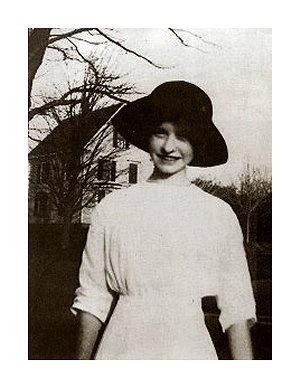
Eunice Tietjens
(1884 – 1944)
Woman
Strangely the sight of you moves me.
I have no standard by which to appraise you; the outer
shell of you is all I know.
Yet irresistibly you draw me.
Your small plump body is closely clad in blue brocaded
satin. The fit is scrupulous, yet no woman’s figure
is revealed. You are decorously shapeless.
Your satin trousers even are lined with fur.
Your hair is stiff and lustrous as polished ebony, bound
at the neck in an adamantine knot, in which dull
pearls are encrusted.
Your face is young and round and inscrutably alien.
Your complexion is exquisite, matte gold over-lying
blush pink, textured like ripe fruit.
Your nose is flat, the perfect nose of China.
Your eyes–your eyes are witchery!
The blank curtain of your upper lid droops sharply on
the iris, and when you smile the corners twinkle
upward.
It is your eyes, I think, that move me.
They are so bright, so black!
They are alert and full of curiosity as the eyes of a
squirrel, and like the eyes of a squirrel they have
no depth behind them.
They are windows opening on a world as small as your
bound feet, a world of ignorances, and vacuities,
and kitchen-gods.
And yet your eyes are witchery. When you smile you
are the woman-spirit, adorable.
I cannot appraise you, yet strangely the sight of you
moves me.
I believe that I shall dream of you.
(Pa-tze-kiao)
Eunice Tietjens poetry
fleursdumal.nl magazine
More in: Archive S-T, Tietjens, Eunice
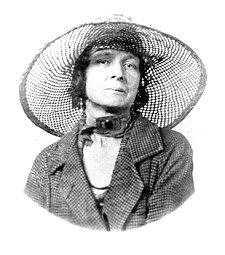
Elsa von Freytag-Loringhoven
(1874 – 1927)
CONTRADICTORY SPECULATIONS
CONTRADICTORY SPECULATIONS
ON MY OWN HOOK’S FALLIBILITY
FLUX
MONEY IS SEXENERGY STORED
– AS IS KNOWLEDGE.
COMBINATION: CULTURE.
TIMES HECTIC-PREPATORY BEGET
IMMENSE TURE STIR
– FAKE ABUNDANCE –
CALM:
SIFTING AUTOMACILA FOLLOWS
– INAUGURATING SERENITY
E.V.F.L
Elsa von Freytag-Loringhoven poetry
fleursdumal.nl magazine
More in: Archive E-F, Dada, Freytag-Loringhoven, Elsa von

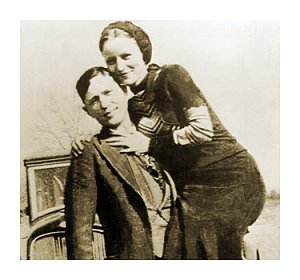
In Memory of Bonnie Elizabeth Parker (1910 – 1934)
Today, on 23 May 2014, it is exactly 80 years ago that outlaw Bonnie Parker was killed by the police (together with her friend Clyde Barrow). Bonnie Parker wrote poems since her schooldays.
A man can break every commandment
And the world will still lend him a hand,
Yet a girl that has loved, but un-wisely
Is an outcast all over the land.
Bonnie Parker
(fragment from the poem The Street Girl)

fleursdumal.nl magazine
More in: Archive O-P, Archive O-P, Bonnie and Clyde, Bonnie Parker, CRIME & PUNISHMENT, In Memoriam
 VPRO BOEKEN met Bob den Uyl Prijs winnaar 2014 = Zondag 25 mei 2014 om 10.30 uur in VPRO Boeken, TV Nederland 1
VPRO BOEKEN met Bob den Uyl Prijs winnaar 2014 = Zondag 25 mei 2014 om 10.30 uur in VPRO Boeken, TV Nederland 1
Wim Brands ontvangt aanstaande zondag de winnaar/winnares van de VPRO Bob den Uyl Prijs 2014, die op zaterdag 24 mei bekend wordt gemaakt tijdens het VPRO neemt–je -mee evenement in Pakhuis de Zwijger in Amsterdam.
De genomineerden van dit jaar zijn:
Joris van Casteren – Het been in de IJssel (Prometheus);
Marcel van Engelen – Het kasteel van Elmina (De Bezige Bij);
Raoul de Jong – De grootsheid van het al (Thomas Rap);
Lieve Joris – Op de vleugels van de draak (AtlasContact);
Rudi Rotthier – De naakte perenboom (AtlasContact);
Laura Starink – Duitse wortels (AtlasContact)
# Meer informatie op website VPRO BOEKEN
fleursdumal.nl magazine
More in: - Book News, Art & Literature News, The talk of the town
Thank you for reading Fleurs du Mal - magazine for art & literature